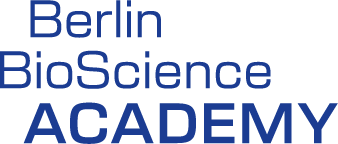
Entrepreneurship training equips students and researchers with real-world enterprise skills, empowering them to increase their entrepreneurial capacity for generating ideas and help them build the necessary skills to make them happen.
The 3-day course is an entry-level entrepreneurship program with F2F hands-on experience and explores the processes involved in transforming early-stage technologies into commercial business opportunities.
Initial Phase
Introduction: The Business Model Canvas (BMC) Approach for Life Science Entrepreneurs
What is your vision? What is your product or service? Where is your market? What is your revenue model? Who is behind the company? Who is your competition? What is your competitive advantage? Dr. Stefanie Reichelt, Cambridge, UK
Business Model Concepts: How can a scientist translate an idea from bench-to-bed-site? Tools that allow inventors to create a business plan, opportunities for academic entrepreneurship to apply inventions to business and society needs. Tamara Schrammel, Siemens Healthineers, Senior Global Marketing Director, Erlangen
Starting a Life Science Business & Raising Venture Capital: An introduction on how to approach industrial partners and provide practical information on how to pitch, funding sources that allow inventors to commercialize their inventions, concept of life science incubators that combine venture capital funding with lab and space provision, different types of entrepreneurial support and consulting. Tamara Schrammel.
Intellectual Property
Do you already have experience filing patents? Is your project more in the diagnostic or therapeutic area? Which parts of the IP world are of particular interest to you? (Patent application strategy, license agreements, freedom-to-operate issues, foreign strategies, cost issues, trademarks, utility models, computer implemented inventions, etc). Dr. Oliver Ladendorf, Kraus & Weisert, Munich
Presentation skills
Train, practice presentation techniques and enlarge skill set by new techniques. Dr. Stefanie Reichelt, Cambridge, UK, Dr. Uwe Lohmeier, GLA, Berlin
Business Case and Elevator Pitch Boot-Camp
Draft your own business plan and elevator pitch as the basis to further develop your invention to a business idea and to decide on how continue
Dr. Stefanie Reichelt, Cambridge, UK, Dr. Uwe Lohmeier, GLA, Berlin, NN
Follow-Up
Update Business Model Concepts: Opportunities for academic entrepreneurship to apply inventions to business and society needs, review of the business model concept and lean canvas and tools that allow inventors to create a business plan. Tamara Schrammel, Siemens Healthineers, Global Senior Marketing Manager, Erlangen, DE
Pitch your idea - Panel discussion & Pitching Session
Participants prepare their own business plan, Entrepreneurship examples by the expert founder panel, Elevator pitches to trainers and founder panel, Feedback from the plenum and wrap-up. Tamara Schrammel & Stefanie Reichelt, Dr. Karen Uhlmann, Omeicos, Dr. Martin Rahmel, DexLeChem, Dr. Christian Regenbrecht, CELLphenomics GmbH, ASC Oncology
Duration:
The qualification will comprise a total of 18 hours.
Size:
The course is limited to a maximum of 16 participants and will only take place with a minimum of 10 participants. Due to organizational reasons, early registration is recommended.
Target Audience:
This 3-day course is an entry-level entrepreneurship program for science-minded researchers that place entrepreneurial thinking, creativity, confidence and experience central to their being.
Learning Goals:
The course explores the processes involved in transforming early-stage technologies into commercial business opportunities and provides a learning experience for students and commercialisation insights for inventors.
Course fee: 1080,- € plus VAT
Private applicants will get a fee reduction of about 10 %.
Further information:
Dr. Uwe Lohmeier
u.lohmeier@campusberlinbuch.de
Version: 31 Mar 2022
Subject to modifications
